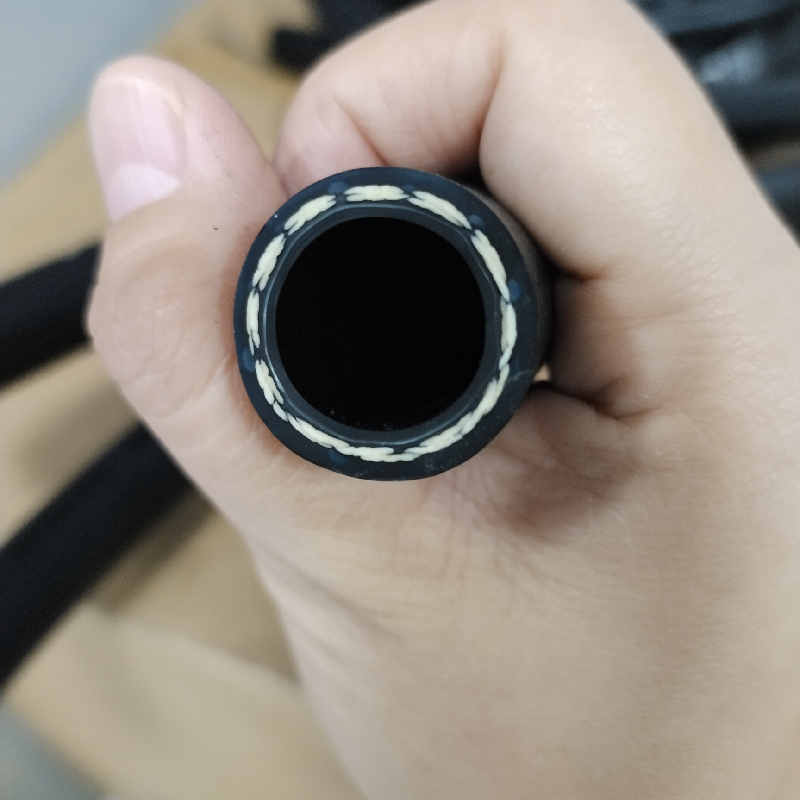gasoline fuel hose
dec . 03, 2024 17:39 Back to list
gasoline fuel hose
Understanding Gasoline Fuel Hoses Essential Components for Safe and Efficient Transportation
In today's fast-paced world, gasoline fuel hoses play a crucial role in the transportation of fuel, whether for vehicles, machinery, or storage systems. These hoses are designed to convey gasoline from one location to another safely and efficiently. Understanding their construction, function, and maintenance is essential for anyone involved in fuel handling, whether you are a fleet manager, a mechanic, or a casual vehicle owner.
What is a Gasoline Fuel Hose?
A gasoline fuel hose is a flexible tube specifically designed to carry gasoline from the tank to the engine of a vehicle or machinery. These hoses are made from materials that can withstand the chemical properties of gasoline, including its corrosive nature, while allowing for safe and easy transport. The most common materials used in the production of gasoline fuel hoses are rubber, polyurethane, and thermoplastic. Each material offers different benefits in terms of durability, flexibility, and resistance to wear and tear.
Types of Gasoline Fuel Hoses
There are various types of gasoline fuel hoses available in the market, each designed for specific applications
1. Standard Fuel Hoses These are the most common type found in vehicles. They are typically made from rubber or synthetic materials that can resist gasoline and other fuels.
2. Ethanol-Compatible Hoses With the increasing use of ethanol-blended fuels, hoses that can handle these mixtures without degrading are essential. Ethanol-compatible hoses are specifically designed to resist the effects of ethanol, ensuring longevity and reliability.
3. High-Pressure Fuel Hoses Often found in performance vehicles or certain machinery, these hoses can handle higher pressures and are built to withstand the rigors of demanding applications.
4. Submersible Fuel Hoses Used in fuel tanks that are submerged in gasoline, these hoses must meet specific standards to prevent leaks and maintain structural integrity while in constant contact with fuel.
Importance of Quality and Compliance
gasoline fuel hose

When dealing with gasoline fuel hoses, quality should never be compromised. Hoses that are poorly manufactured can lead to fuel leaks, which not only pose a fire hazard but also contribute to environmental pollution. Compliance with industry standards and regulations, such as those set by the American Society for Testing and Materials (ASTM) and other relevant bodies, is vital to ensure the safety and performance of fuel hoses.
Maintenance and Safety Tips
Proper maintenance of gasoline fuel hoses is crucial to ensure their functionality and to prevent accidents. Here are some tips to consider
1. Regular Inspections Frequently check fuel hoses for signs of wear, cracks, or leaks. Early detection of issues can prevent more significant problems down the line.
2. Replace When Necessary If a hose shows signs of damage, it’s imperative to replace it immediately. Ignoring this can lead to dangerous leaks or complete failures.
3. Use the Right Hose for the Job Ensure that the hose you select is suitable for the specific type of fuel you are using, whether it is standard gasoline, diesel, or an ethanol blend.
4. Store Properly When not in use, store hoses in a cool, dry place away from direct sunlight and extreme temperatures. This helps to prolong their lifespan.
5. Professional Installation For heavier machinery or performance vehicles, consider hiring a professional for hose installation to ensure everything is fitted correctly and safely.
Conclusion
Gasoline fuel hoses are integral components of any internal combustion engine system, ensuring the efficient and safe transportation of fuel. Understanding the different types, maintaining quality, and adhering to safety standards can significantly reduce risks associated with fuel handling. By following these guidelines, users can ensure the safety and reliability of their fuel systems, contributing to a more sustainable and efficient transportation landscape.
